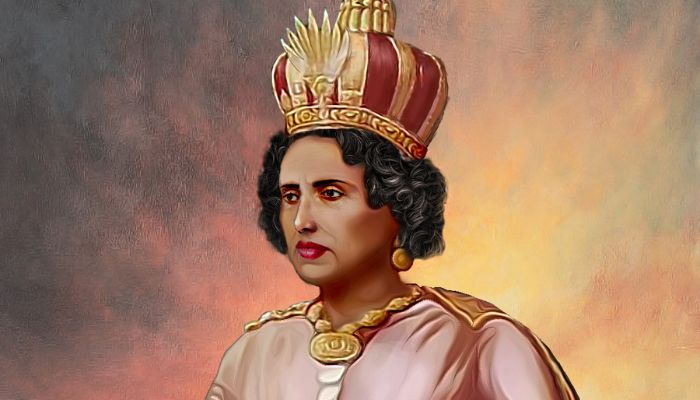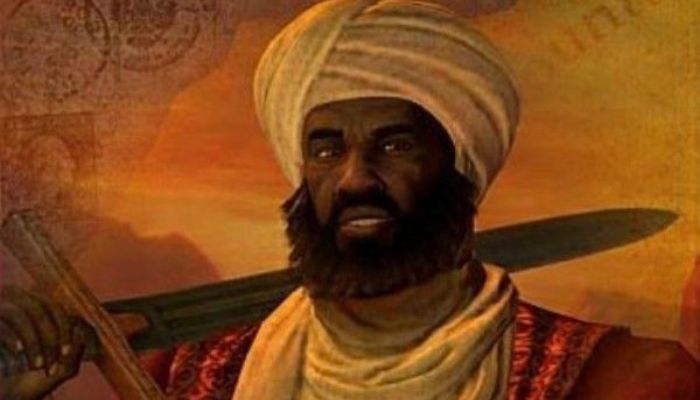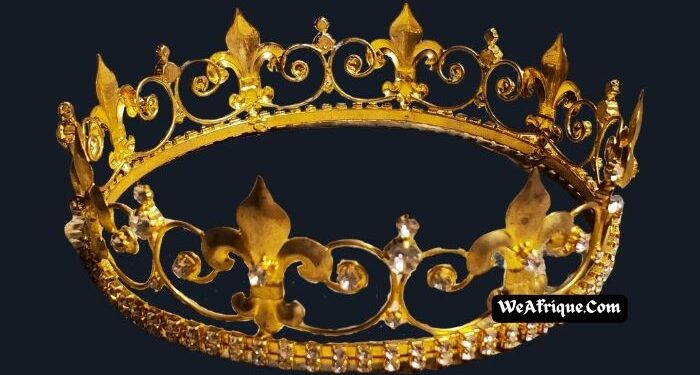The accounts of great kings and queens in Africa tell of extraordinary monarchs and rulers who governed different parts of the continent and made great impacts during their reigns.
Among them is Sonni Ali Ber of the Songhai Empire, who is known for a series of conquests. Ranavalona I resisted Western imperialism, and the list goes on. Sit back as we take you on an interesting ride through the lives of these men and women who demonstrated courage, bravery, and exceptional leadership skills.
10. Sonni Ali Ber
Sonni Ali Ber, a great African king who ruled the Songhai Empire from 1464 to 1492, transformed the empire through a series of conquests. He was the first king of the empire to defeat the Mali Empire, making it part of his own. He also defeated and captured the fortified cities of Timbuktu and Djenne, as well as the Mossi, Dogon, and Tuareg peoples.
This African monarch is remembered as a great magician. Instead of following the Islamic religion of the Mali Empire, he allowed the practice of both Islam and African traditional religion in his empire. However, Islamic chroniclers portrayed Sonni as a tyrant.
During his reign, the Songhai Empire experienced a great increase in power and wealth, surpassing the great Mali Empire. Sonni Ali Ber died on November 6, 1492, after drowning while crossing the Niger River. Other sources report that he was killed by his nephew, Askia Muhammad Toure. He was succeeded by his son, Sunni Baru.
9. Ranavalona I

This African queen, also known as the Mad Queen of Madagascar, was born in 1788 as Ramavo into a very humble background. Her father heard of a plot to kill the future king, Radama, and reported it to him. In return, the king adopted Ramavo and arranged for her to marry his son, the future king.
She became the first of his 12 wives. However, the couple did not give birth to any children by the time Radama died, so there was no heir to the throne.
The throne of Madagascar was then designed to be handed over to Radama’s nephew, Prince Rakotobe. However, tradition stated that any child Ranavalona bore, whether for him or not, would be considered his and would automatically become the heir. To retain his throne, Rakotobe plotted to kill Ranavalona, but she found out and decided to act swiftly.
Before Radama’s death, he had been open to Western influence by allowing Christian missionaries to set up schools and even sending some of his children to these schools. Ranavalona then aligned herself with religious and traditional leaders. She mobilized a group of military men from her hometown and occupied the palace. The kingmakers were given a choice to either accept Ranavalona as queen or suffer the consequences. She was declared queen on August 1, 1828.
During her reign, she undid most of her husband’s reforms and terminated trade agreements with the French and English. Those who resisted her rule were fed a poisonous nut called Tangena that was used to test a person’s loyalty. Sometimes, these rebels were tortured and mutilated.
Other tribes apart from hers also suffered under her rule. She abolished Christianity in her kingdom and killed all those who disobeyed her order. This queen is said to have killed between 30 and 50 percent of the entire population during her reign.
She became very rich and was considered the ruler favored by the gods. Although she was known for cruelty, tyranny, and xenophobia, she protected her people from European encroachment. She is also known as “Ranavalona the Cruel.”
8. Askia Muhammad I

Muhammad Toure also known as Askia the Great is the most renowned ruler of the Songhai Empire. He was the chief minister to Sonni Ali. Askia deposed Sonni Baru, Sonni Ali’s son who succeeded him after his death. He violated the succession mode of the empire because he was not from a royal lineage.
Under his rule, the Songhai Empire expanded rapidly. It incorporated modern-day Kano state in Nigeria. He made all former territories of the Mali Empire pay tributes to Songhai. Askia the Great also introduced policies that increased the empire’s trade with Europe and Asia. He established standardized trade measures and regulations and initiated the policing of trade routes and an organized tax system.
He expanded Islam in his territories, created Islamic schools, made it an integral part of the empire, and replaced Songhai administrators with Arab Muslims. The period of his reign was marked by a love for war and respect for Islam, which is why Islamic scholars consider him the greatest king of the empire.
He was deposed by his son Askia Musa in 1528 and died in 1538 at the age of 96.
7. Hatshepsut
This African queen is known to be the most powerful female pharaoh in Egypt’s history. She was born around 1504BC, to Pharaoh Thutmose I, who died without a son. She then married her half-brother Thutmose II and helped him become pharaoh. After his death, her stepson, Thutmose III who was just 3 years old at the time, became king.
Hatshepsut ruled Egypt in his name. By the time he was 8, she took the throne and named herself his co-ruler. This was said to be due to brewing plots to overthrow the young pharaoh. The both of them would rule together for the next 22 years.
This African queen brought great wealth and prosperity to Egypt. She sponsored one of the empire’s most successful trading expeditions, bringing back gold, ebony, and incense from Punt.
Some of her legacies including 100-foot-tall obelisks in the great temple complex at Karnak are still standing in Egypt to this day. She also built the mortuary temple of Deir el Bahri, where she was buried after she died in 1458 BC.
Although early depictions of her were feminine, they began to take a masculine feel along the line. She was sometimes depicted in the traditional garment of the male ruler of Egypt. By the end of her reign, she had dropped all feminine titles and picked up the masculine version of her name, Hatshepu. However, she was referenced by historians as a woman with the title “Daughter of Re” or “His Majesty Herself”.
6. Idris Alooma
Idris Ali, posthumously named Idris Alooma was the greatest ruler of the Kanem-Bornu Empire of West Africa. He was an outstanding statesman and during his reign as Mai, the empire reached the zenith of its power. Idris Alooma built his palace in Gambaru against the capital city of Ngazargamu.
He was a skilled military man, who fought and conquered his adversaries which included the Hausa to the west, Tuareg and Toubou to the north, and the Bulala to the east. He was said to have won 330 wars and more than a thousand battles.
Mai Idris Alooma expanded the empire’s military. He introduced the iron-helmeted musketeers who were trained by the Ottoman military. This African king had strong diplomacy with different kingdoms. He signed the first recorded treaty in the empire’s history.
The Mai introduced a wide range of legal and institutional reforms. He funded the building of several mosques, made a pilgrimage to Mecca, and arranged for the establishment of a hostel to be used by the pilgrims from his empire. He introduced Islamic learning in the empire and improved the navigation of the Yobe River.
The ruler also introduced a larger number of camels for transportation. The capital city of his Empire became one of the largest cities in Africa during his reign.
5. Queen Moremi
Moremi, a legendary Yoruba queen and folk heroine, was born in the 12th century in a village called Offa, in present-day Kwara State, Nigeria. She was the wife of Oranmiyan, the son of Oduduwa, the founder of the Yoruba people of West Africa.
At the time, the Yoruba people were at war with an adjoining tribe known as the Ugbo. The people of Ile-Ife were furious about the Ugbo’s attacks, but they did not know what to do about it because they believed the invaders were not human.
To deal with the problem, Moremi pledged a huge sacrifice to the spirit of the river, Esimirin, if it gave her strength and wisdom on how to help her people. Esimirin agreed, and Moremi then offered herself to be captured by the Ugbo people and was taken to their land.
With Esimirin’s help, Moremi found favor in the sight of the Ugbo king and eventually became his wife. During her stay there, she familiarized herself with the secrets of the Ugbo army. When she had learned enough, she fled back to Ile-Ife and revealed the secrets to her people.
This helped the people of Ile-Ife to defeat the Ugbo people in battle. After the war was over, Moremi returned to her husband, Oranmiyan, who reinstated her as queen.
To fulfill her promise to Esimirin, Moremi sacrificed her son, Oluorogbo. This was a difficult decision, but Moremi knew that it was necessary to protect her people.
Today, Moremi is revered by the Yoruba people for her bravery and selflessness. They celebrate the Edi Festival in her honor, and a statue of her was erected in 2017 by Oba Ogunwusi. It is the tallest statue in Nigeria and the fourth tallest in Africa.
4. Behanzin Bowelle
King Behanzin was the last independent ruler of the Kingdom of Dahomey. He was the son of Glele, the 10th king of Dahomey, and became the 11th king of the empire in 1890, after his father’s death. Kondo then changed his name to Behanzin.
Behanzin was a strong and courageous leader. He fought the Europeans when they started encroaching on his empire, which was one of the most powerful kingdoms of West Africa. During his reign, Dahomey had one of the strongest armies in the area, comprising both men and women. He skillfully led his troop of 15,000 men and 5,000 women to war.
In 1882, France declared Porto Novo, a neighboring city, a French protectorate without consulting its people. Behanzin saw this as disrespectful, and his people refused to tolerate it. After he became king in 1890, he attacked the French with rifles provided to them by the Germans, on both military and economic fronts.
Behanzin subsequently declared that the treaty signed by his father was null and void and then declared war on the French. Despite losing the war, Behanzin refused to sign a treaty making Dahomey a French colony. He was then tricked into exile in Martinique, where he died in 1906.
3. Ahebi Ugbabe
This African leader is known for being the only female king in colonial Nigeria. She was born in Enugu-Ezike as the only daughter of a farmer and palm wine tapper and his trader wife. After her father consulted a spiritualist over the series of mishaps that occurred in their family, he was told that he had offended a god and the only way out was to offer his daughter as a wife to the goddess. Ahebi fled to Igala without any handwork or education. To fend for herself, she resorted to sex work, which helped her to meet different people from different places. She learned to speak different languages including Nupe, Igala, and Pidgin English.
From the proceeds of her business, she began to trade in palm oil and horses. She became one of the most influential traders in the area, and her ability to speak different languages gave her an edge over the local traders who could only speak Igala. She also got access to British colonials.
After the colonialists invaded Enugu, with her help, she was able to court their alliance and returned home in 1918. Ahebi was made the village headman under the supervision of the Divisional Officer. She rose to a warrant chief and subsequently went back to Igala where she was crowned king.
During her reign as king, she held court cases in the palace while making money from the services she offered. She offered her palace to women who had abusive husbands and became their husbands. Ahebi married wives for herself, looked for men who had sex with these wives, and claimed paternity. She hosted a Catholic school in her palace as well.
Ahebi died in 1948; however, she had performed her funeral rites two years earlier because of fear that she might not be given a befitting burial.
2. Ewuare the Great
One of the greatest kings in Africa is Oba Ewuare, son of Oba Ohen of Benin. He was given the name Ogun at birth and took up the name Ewaure after he became king of Benin in 1440. Ewuare was crowned king after he overthrew his brother Uwaifokun, who betrayed him after being sent into exile.
As king of the empire, he brought about many reforms. He transformed it politically, socially, religiously, and economically, and the kingdom of Benin experienced prosperity. He rebuilt the kingdom, reformed its political structure, and adopted the firstborn succession system.
During his reign, he won over two hundred battles and expanded his kingdom to different towns. He facilitated trade between his kingdom and the Portuguese.
Similarly, he expanded the arts sector of the kingdom and introduced coral beads for which the Benin people are famous. He introduced several festivities to the area.
Ewuare the Great died in 1473 and was succeeded by his son Ezoti.
See Also: 10 Shocking Beauty Practices Across Africa
1. Nzinga Mbande
Also known as Nzinga of Ndongo and Matamba, this African queen ruled her kingdom between 1583 and 1663. She was born into the royal Ndongo family.
Her father, Ngola Kiluanji, allowed Nzinga and her brother, Ngola Mbandi, to witness his governance. As a result, they had an understanding of the implications of Portuguese colonialism and slavery.
Subsequently, after her brother became king, he sent Nzinga as his emissary to Luanda. There she created an impression on the governor when she refused to sit on the floor and instead called her servant to kneel on all fours and sat on him as a human chair. She converted to Christianity and was baptized. While he was away, her brother, the king, died under unknown circumstances.
Nzinga returned and claimed the throne as ruler of the kingdom after her nephew, the rightful heir, was killed, presumably by Nzinga.
During her reign as queen, Nzinga led the Mbundu army to war against the Portuguese which ended in 1647 after 30 years. She fought against the Portuguese and their expansion of slave trade in her territory.
The queen kept both male and female concubines, married multiple husbands, and insisted on being addressed as a king while wearing male clothes. Nzinga died on December 17, 1663, and was succeeded by her sister Barbara.




















